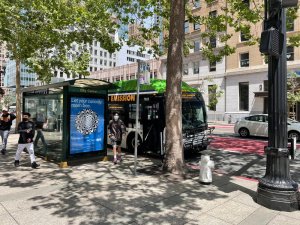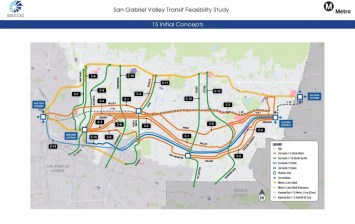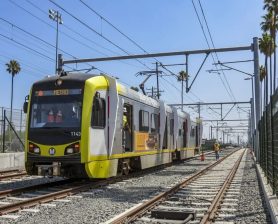Will “Crash-Proof” Cars Make Drivers More Dangerous?
Via TreeHugger, Copenhagenize
reports that Volvo is in the final stages of testing technology to
improve safety for people outside its products — a "pedestrian
detection" system available in S60 models next year:
It is meant to spot all pedestrians in front of the car as well as off
to the sides in a 60 degree angle. It will warn the driver with a red
flashing light on the windshield if the car is on a collision course
with a pedestrian.If the driver doesn’t react quick enough it
will brake automatically up to 25 km/h and stop by itself if the car is
traveling under 25 km/h.
The system cannot recognize bicyclists yet, but engineers are working on it.
At
first blush, a car on the lookout for pedestrians seems like a
can’t-lose safety measure. But a lot depends on how drivers compensate,
knowing that their vehicles can mitigate their own lapses in judgment
and attention. Might a safer, smarter car lead people to take more
risks and exercise less care behind the wheel?
Since this is exactly the sort of question that comes up again and again in Traffic (recipient of the 2008 Streetsie for best book), I emailed author Tom Vanderbilt to get his take on the merits and drawbacks of Volvo’s new tech. Here’s what he wrote back:
It’s hard not to be of two minds about this. On the one hand, I’m all for
personal responsibility and putting the driver in charge. On the other
hand, there are certain times when even the most cautious driver might be
plagued by some shortcoming in perception or attention — e.g., a few months
ago I almost hit a cyclist because I did not see them in my right-rear blind
spot, and I wasn’t expecting a cyclist to be there. It’s unfortunate that
it doesn’t work at night, given the overrepresentation of pedestrian
fatalities at that time, partially having to do with visibility. But in any
case the real question is whether even with negative behavioral adaptation
there’s still a net safety gain. And the other bright spot is at least
someone besides Honda is actually thinking about pedestrians from the car’s
point of view.
Interestingly, I’ve heard that some of the settings at which auto engineers
place these systems for activation are much more stringent than what drivers
themselves seem to desire — so maybe the car really would know best in this
situation.And of course there’s other things we could do, vis a vis technology, to
improve urban traffic safety, "Intelligent Speed Adaptation" being top of
the agenda here. This too is a form of "collision avoidance," as obviously
the slower you’re going, the more time to avoid a crash.
I
should note that the pedestrian detection system will be optional on
those new Volvos, part of a $3,500 premium package. So for now, this
potentially life-saving tech remains a luxury item.



